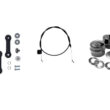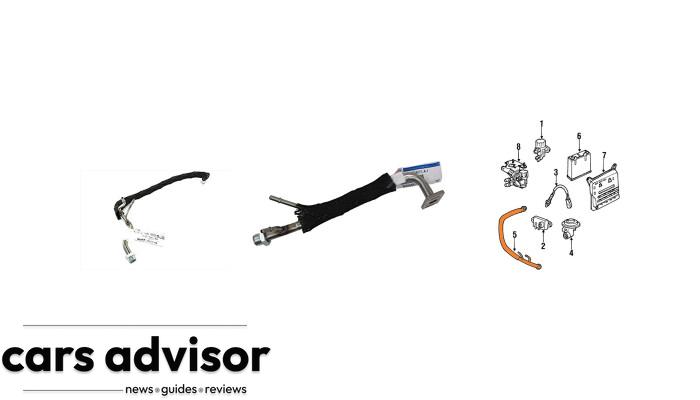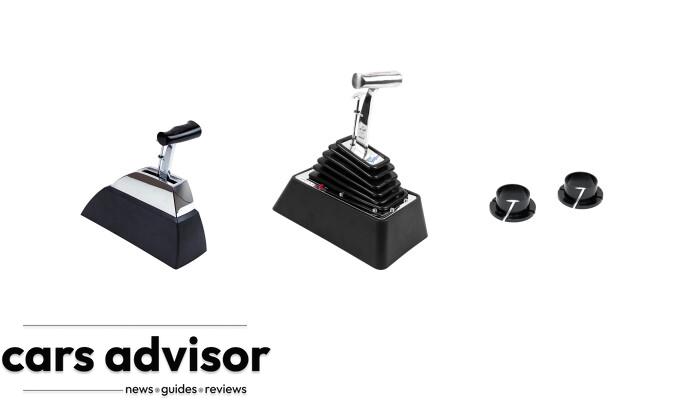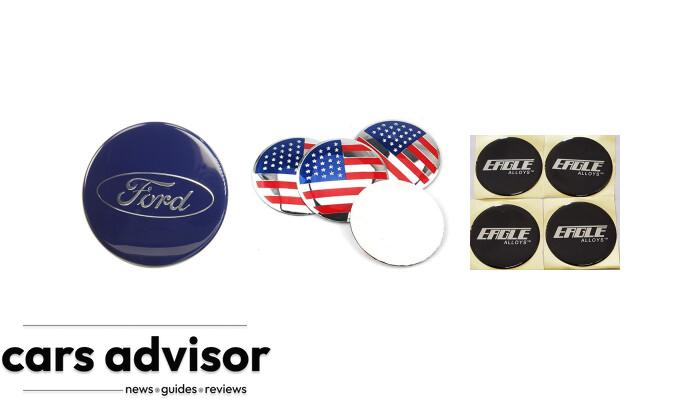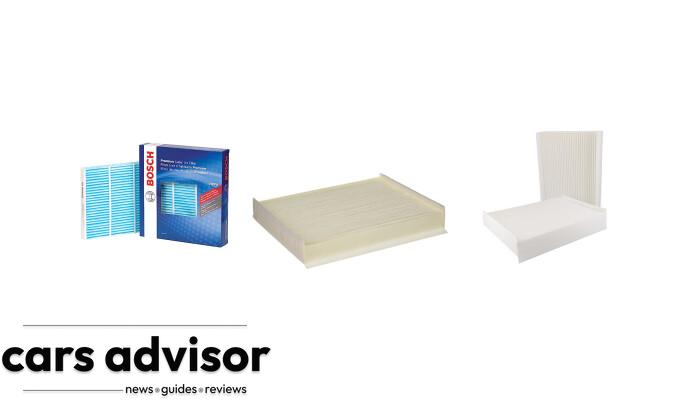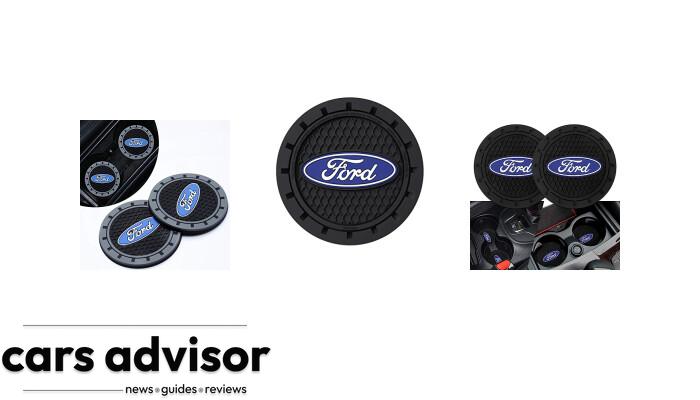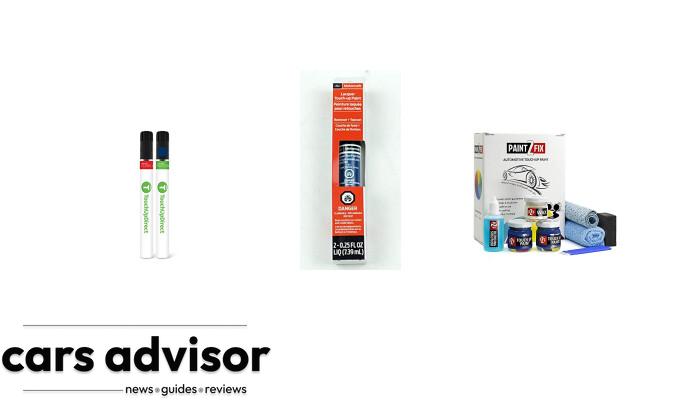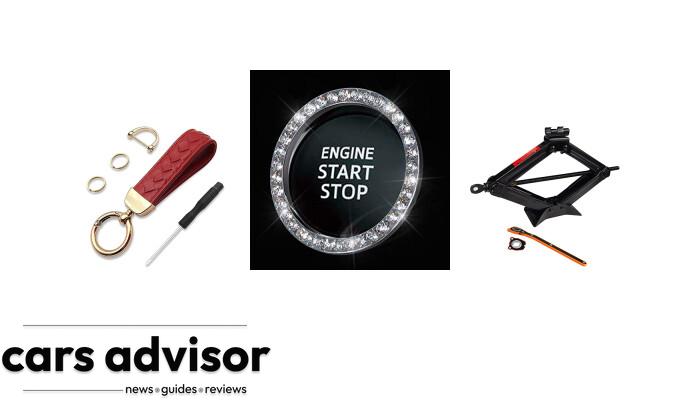Experiencing Noise When Braking At Low Speed can be frustrating and concerning for any vehicle owner.
In this blog, we’ll dive into the common causes of those pesky brake noises, such as worn-out brake pads or dirt on the rotors, and provide tips on identifying and fixing these issues before they escalate into more significant problems.
Your safety is our priority, so let’s explore what could be behind that noise and get your brakes back to smooth, quiet operation!
Keep reading to learn how to keep your vehicle in top-notch condition while preventing unwanted surprises during those low-speed stops.
Common Causes Of Brake Noise When Braking At Low Speed
Worn brake pads, warped or corroded brake rotors or drums, contaminated brake components, loose brake components and non-lubricated brake components are among the most common causes of noisy brakes when braking at low speed.
Worn Brake Pads
One common cause of noise when braking at low speeds is worn brake pads. Over time, the friction material on your vehicle’s brake pads starts to wear away due to regular use, eventually leaving behind a thinner and less effective pad.
As these worn-out pads come into contact with the rotors or drums during braking, they produce various sounds, such as squeaking, grinding, or groaning, that become more noticeable at lower speeds.
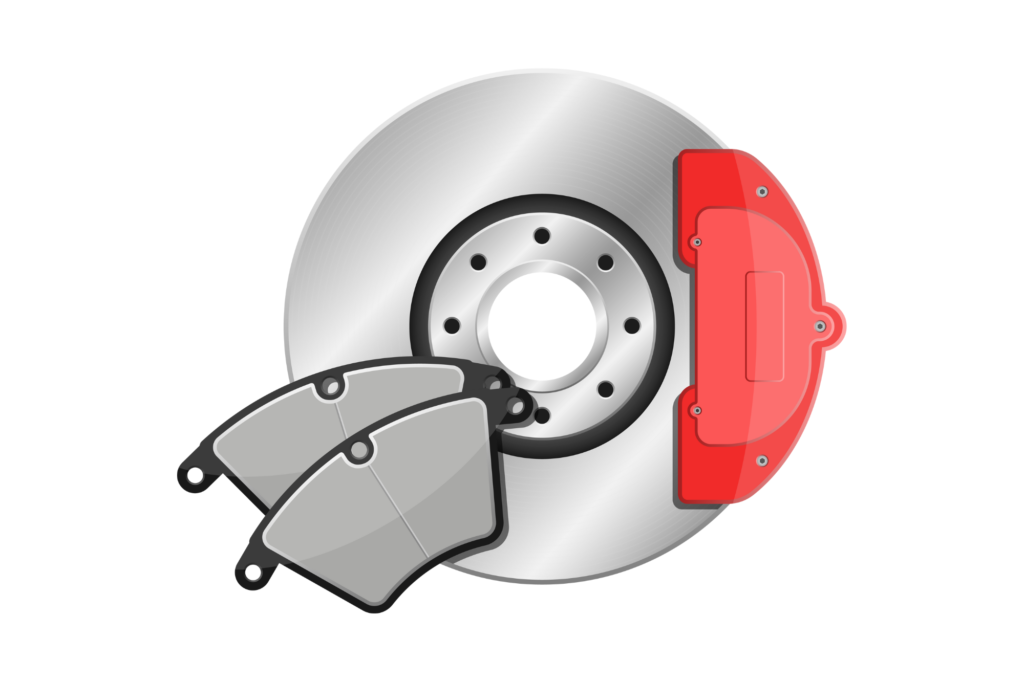
A telltale sign of worn brake pads is the presence of a metallic squealing sound emanating from your wheels while driving.
This sound occurs because most modern brake pads have small metal indicators called wear sensors embedded within them.
When the brake pad material wears down to a certain level, these sensors contact the rotor surface, producing an audible signal for drivers to replace worn-out components.
Ignoring this warning sign can further damage your braking system and even compromise its ability to stop effectively.
To avoid experiencing unnecessary noise and potential safety risks associated with worn brake pads at low speeds, regularly inspect and maintain your vehicle’s brakes as part of routine automotive care.
Not only will this help keep your car safer by ensuring proper stopping power, but it also allows you to address potential issues before they escalate into costlier repairs or accidents later.
Warped Or Corroded Brake Rotors Or Drums
Another possible culprit for brake noise at low speeds is the presence of warped or corroded brake rotors or drums.
Over time, these vital components may become uneven or develop rough spots due to moisture, heat, and friction exposure. This can lead to vibrations and pulsations that cause noticeable sounds when applying the brakes.

Drivers may sometimes feel a shaking sensation and noise when braking slowly.
Warped or corroded rotors can cause more serious issues, such as reduced stopping power and premature wear on other brake components if left untreated.
To address this issue, have your vehicle inspected by a qualified mechanic who can determine if resurfacing or replacement of the affected parts is necessary.
Regular maintenance of your braking system can also help prevent costly repairs.
Contaminated Brake Components
Contaminated brake components can also cause noise when braking at low speeds. Dirt, dust, moisture, and other debris can accumulate on the brake pads, rotors, or drums over time, causing a grinding or squeaking noise.
This contamination can also reduce friction between the brakes and wheels, which may result in longer stopping distances.
The contaminated brake components must be cleaned or replaced to fix this issue. While cleaning is generally possible for some parts like callipers and backing plates, heavily contaminated brake pads or rotors may need to be replaced entirely.
Regular maintenance of your car’s braking system is vital to prevent such issues from occurring due to contaminated components.
Overall it’s important not to ignore any strange noises coming from your car’s brakes as they can indicate underlying issues that, if left unfixed, could lead to further damage or even accidents on the road.
Therefore always get any unusual sounds checked out by a professional mechanic who will use their expertise in brake systems and specialist diagnostics tools to find out what’s causing your noisy brakes at low speeds correctly.
Loose Brake Components
Loose brake components can also cause noise when braking at low speeds. Loose wheel nuts and sticky calliper pins are the common reasons for this issue.
Loose wheel nuts can result in vibration and shaking while braking, affecting brakes’ performance over time.
On the other hand, due to lack of lubrication or corrosion, sticky calliper pins may not allow proper movement of brake pads, causing uneven wear and tear on them.
In turn, it causes friction with rotors that produce noise when applying brakes. Regular maintenance is essential to prevent loose brake components from creating problems with your vehicle’s braking system.
In conclusion, loose brake components can cause grinding, clunking or squeaking sounds when applying brakes at low speeds. It clogs or damages different parts like control arm bushes and disks if left unchecked.
Therefore it is crucial to have your brakes checked by a professional mechanic regularly so you can take prompt action before minor issues become major headaches down the road!
Non-lubricated Brake Components
Non-lubricated brake components commonly cause brake noise when braking at low speeds. When the various parts of a vehicle’s braking system lack proper lubrication, they can become stiff and grind against each other, creating an irritating noise.
Sticky calliper pins, worn-out control arm bushes, or loose wheel nuts can also cause clunking noises when you hit the brakes at low speed.
Regular maintenance on your vehicle’s brakes can help prevent this issue from occurring. It’s important to have a mechanic inspect your brakes regularly and add lubrication when needed.
Investing in quality brake components is also essential, as they tend to last longer and require less maintenance overall.
Taking care of your vehicle’s brakes can reduce the likelihood of loud noises spoiling your driving experience while ensuring it remains safe for years.
Signs And Symptoms Of Brake Noise
Squeaking, squealing or grinding noise, vibration or shaking while braking, and reduced braking performance are common signs and symptoms of brake noise when driving at low speeds.
Squeaking, Squealing Or Grinding Noise
Squeaking, squealing, or grinding noises are common brake noises and can be caused by various factors such as worn-out brake pad materials, dirty brakes, glazed brake rotor or drum, lack of lubrication on the brakes and poor-quality brake pads.
Here are some important facts to consider:
- Dirty brakes probably cause the squeaking noise when braking at low speed.
- If you hear a high-pitched squealing noise when applying your brakes at low speed, it may indicate that your brake pads need replacement.
- A screeching noise when braking at low speed could be due to a glazed brake rotor or drum.
- Grinding noise when braking at low speed indicates that the brake pads have completely worn out, and there is metal-to-metal contact between the calliper and rotor.
- If you hear a chirping sound from the wheels even when not braking, your brake pads are likely wearing down faster than usual.
Vibration Or Shaking While Braking
It could indicate an issue with the brake system if you feel a vibration or shaking while braking at low speeds. The most common reason for this is warped or corroded brake rotors or drums.
When the brakes are applied, the pads press against the rotors to slow down and stop the car. Any irregularity on the surface of these components can cause vibrations in your car’s steering wheel or body.
Another possible reason for vibration when braking is worn-out suspension components, such as control arm bushings, that may allow too much movement during braking.
Loose wheel nuts and sticky calliper pins can also result in vibrations while applying brakes at low speed.
To fix this issue of a vibrating brake pedal, you’ll need to have your mechanic inspect and repair any damaged parts affecting your vehicle’s suspension system, wheels or brakes to ensure they are working properly again.
Regular maintenance on your vehicle’s brake system will help prevent issues like vibration so that you can safely enjoy driving without experiencing discomforting sounds similar to those heard from some old appliances!
Reduced Braking Performance
Reduced braking performance is a serious issue that needs to be addressed immediately.
Here are some common causes of reduced braking performance:
- Worn-out brake pads – When the brake pads have worn down, they will not be able to generate enough friction to stop the vehicle effectively.
- Warped or corroded brake rotors – Damaged brake rotors can cause uneven contact with the pads, reducing stopping power.
- Air in the brake lines – Air in the brake lines can prevent proper engagement of the brakes and lead to reduced performance.
- Contaminated brake components – Dirt, debris, or fluid leaks can contaminate the brakes and reduce their effectiveness.
- Stuck callipers – If one or more become stuck, it can cause uneven braking and reduce overall stopping power.
- Poor brake components – Low-quality parts like cheap brake pads may not provide adequate friction for good stopping power.
- Loss of traction – Reduced traction on slippery roads or during heavy rain may cause a decrease in braking performance.
It’s important to promptly address any issues with your brakes to ensure your safety on the road. Regular maintenance and inspection of your car’s braking system can help prevent these issues from occurring in the first place.
How To Fix Brake Noise
To fix brake noise, you can replace worn brake pads, resurface or replace warped or corroded rotors, clean or replace contaminated brake components, tighten loose parts and lubricate all necessary components.
Replace Worn Brake Pads
Worn-out brake pads are a common cause of brake noise when braking at low speeds. You can replace the worn-out brake pads with new ones to fix this issue.
Here are the steps you need to follow to replace worn brake pads:
- Loosen the lug nuts on the wheel using a lug wrench.
- Lift the car using a jack and secure it on a jack stand.
- Remove the wheel and locate the brake calliper assembly.
- Use a socket wrench to remove the bolts holding the calliper in place.
- Slide out the old brake pads and remove any retaining clips or hardware.
- Insert new brake pads into their respective slots in the calliper assembly.
- Reinstall any retaining clips or hardware that were removed earlier.
- Use a C-clamp or piston compressor tool to compress the calliper piston back into its housing.
- Reinstall the calliper assembly onto its mounting bracket and tighten any bolts that were removed earlier.
- Replace your wheel, tighten your lug nuts, and lower your vehicle.
Regularly replacing worn-out brake pads is an important part of maintaining your braking system and preventing noisy brakes at low speeds.
Resurface Or Replace Warped Or Corroded Brake Rotors
If you hear a grinding or groaning noise when braking at low speed, it could be due to warped or corroded brake rotors.
Here are the steps to resurface or replace these brake components:
- First, remove the wheel and inspect the brake rotor for any signs of warping or corrosion.
- If the rotor is slightly warped or has surface rust, it can be resurfaced using a brake lathe. This process involves removing some material from the rotor’s surface to create an even finish.
- The rotor must be replaced entirely if it is severely warped or corroded.
- Before installing new rotors, clean the hub and mounting surfaces to ensure proper seating of the new rotor.
- Install new calliper hardware and brake pads, as the warped or corroded rotor may have damaged these components.
- Finally, properly torque all bolts and nuts according to manufacturer specifications.
By properly maintaining your brake rotors through resurfacing or replacement when necessary, you can avoid noisy brakes and ensure safe stopping performance in your vehicle.
Clean Or Replace Contaminated Brake Components
Contaminated brake components can cause noise when braking at low speeds.
Here are some steps to clean or replace these contaminated parts:
- Check the brake fluid: Brake fluid can get contaminated over time, leading to poor braking performance and noise. Make sure to check the brake fluid level and replace it if necessary.
- Clean the brake pads and rotors: Dirt or rust on the brake pads and rotors can cause noise. Use a high-quality brake cleaner spray to clean these parts thoroughly.
- Replace damaged brake components: Check for damaged or worn-out brake components such as callipers, wheel bearings, or bushings. These should be replaced immediately to prevent further damage and noise.
- Remove rust from backing plates: Rust on the backing plates can also cause noisy brakes. Use a wire brush to remove any rust or corrosion from these plates.
- Lubricate moving parts: Lack of lubrication on the brakes can also cause noise. Lubricate all moving parts with a high-temperature grease to reduce friction between metal parts.
Cleaning or replacing contaminated brake components can improve braking performance while eliminating any annoying noises when stopping at low speeds.
Tighten Loose Brake Components
Loose brake components can make noise when braking, so tightening them promptly is important.
Here are the steps to do so:
- Park your car on a flat surface and engage the parking brake.
- Remove the wheel with a lug wrench or impact gun.
- Inspect the brake components for looseness, such as loose calliper bolts or pads.
- Tighten any loose bolts or nuts, following the torque specifications in your owner’s manual.
- Ensure all bolts and nuts are secure before turning the wheel on.
- Repeat the process for all wheels.
By tightening loose brake components, you can improve braking performance and prevent noise caused by loose parts rattling around while driving.
Regular brake maintenance, including checking for loose components, can help prolong the life of your brakes and keep you safe on the road.
Lubricate Brake Components
Lubricating brake components is important in preventing noise when braking at low speeds.
Here are some of the key components that need lubrication:
- Calliper slide pins allow the brake pads to move back and forth freely. They can become sticky and cause uneven pad wear or noisy brakes if not well-lubricated.
- Backing plates: The backing plates that hold the brake pads need to be lubricated where they touch the calliper pistons to prevent vibration noise.
- Brake pad contact points: The parts of the brake pads that come into contact with the callipers should be lightly coated with high-temperature grease or copper slip compound, which helps reduce friction and noise.
- Brake rotor hub: Lubricate the centre hub of your rotor, as rust and dirt accumulation can lead to a grinding noise while braking.
Regularly lubricating these components can help prevent unnecessary wear and tear while ensuring your brakes’ optimal performance.
Proper lubrication will also help reduce noise from your braking system, making for a smoother ride overall.
Prevention Tips For Brake Noise
To prevent brake noise when braking at low speeds, drivers should perform regular brake maintenance, avoid rough driving habits, and invest in high-quality brake components.
Perform Regular Brake Maintenance
Regular brake maintenance can help prevent noise and other issues.
Here are some tips for maintaining your brakes:
- Check brake fluid levels regularly, and top up if necessary.
- Inspect brake pads and shoes for wear and replace them as needed.
- Inspect callipers, rotors, and drums for signs of damage or wear.
- Check brake lines and hoses for leaks, cracks, or other damage.
- Lubricate brake components as recommended by the manufacturer.
- Clean wheels and tires regularly to prevent the buildup of debris that can damage brakes.
- Avoid hard braking whenever possible to reduce wear on brake components.
- Schedule regular brake inspections with a qualified mechanic to catch potential problems before they become major.
Following these simple maintenance tips, you can ensure that your brakes remain in good working order and avoid noisy or malfunctioning brakes while driving at low speeds.
Avoid Rough Driving Habits
One way to prevent noise when braking at low speeds is by avoiding rough driving habits. Abrupt stops, sudden turns, and hard accelerations can all put excessive stress on the brake system and cause premature wear and tear.
Instead, try to drive smoothly and maintain a safe distance from other vehicles so you have plenty of time to slow down gradually.
Another way to avoid rough driving habits is by paying attention to road conditions. Slow down in heavy traffic or bad weather conditions like rain or snow.
This will allow you more time to react if there’s an emergency ahead, reducing the need for sudden braking that could contribute to noise.
Additionally, be mindful of any changes in your vehicle’s handling or performance, as these could indicate problems with the brake system that may require repairs.
Proactive maintenance is critical for preventing unexpected brake issues that could lead to noise when braking at low speeds.
Following good driving practices and regularly servicing your brakes during routine tune-ups or inspections every 10k miles can ensure the best possible outcome in keeping your vehicle quiet while giving you maximum stopping power when it counts most!
Invest In Quality Brake Components
Investing in quality brake components is one of the best ways to prevent noisy brakes when braking at low speeds.
Here are some benefits of investing in high-quality brake components:
- Quality brake pads can reduce noise, improve braking performance, and last longer than cheaper options.
- Premium rotors are less likely to warp or corrode, which can cause vibration and noise.
- Quality callipers are less likely to stick or malfunction, preventing noise and other issues with the braking system.
- High-quality brake fluid can ensure the smooth operation of the brake system and prevent corrosion.
By investing in quality brake components, drivers can enjoy a quieter and safer driving experience while saving money in the long run by avoiding costly repairs due to poor-quality parts.
It’s worth upgrading to premium brake components for better performance and longevity.
Conclusion
In conclusion, hearing noise when braking at low speeds can indicate various problems with your vehicle’s brake system. Pay attention to the type of sound you hear, as it may indicate different issues.
Don’t ignore unusual brake sounds, whether squeaking, grinding, clunking or groaning. Regular braking system maintenance is crucial in preventing these types of noise and other potential issues.
So next time you hear a noisy brake at low speed, take action promptly and get your brakes checked by a professional mechanic for safe driving and peace of mind on the road!
